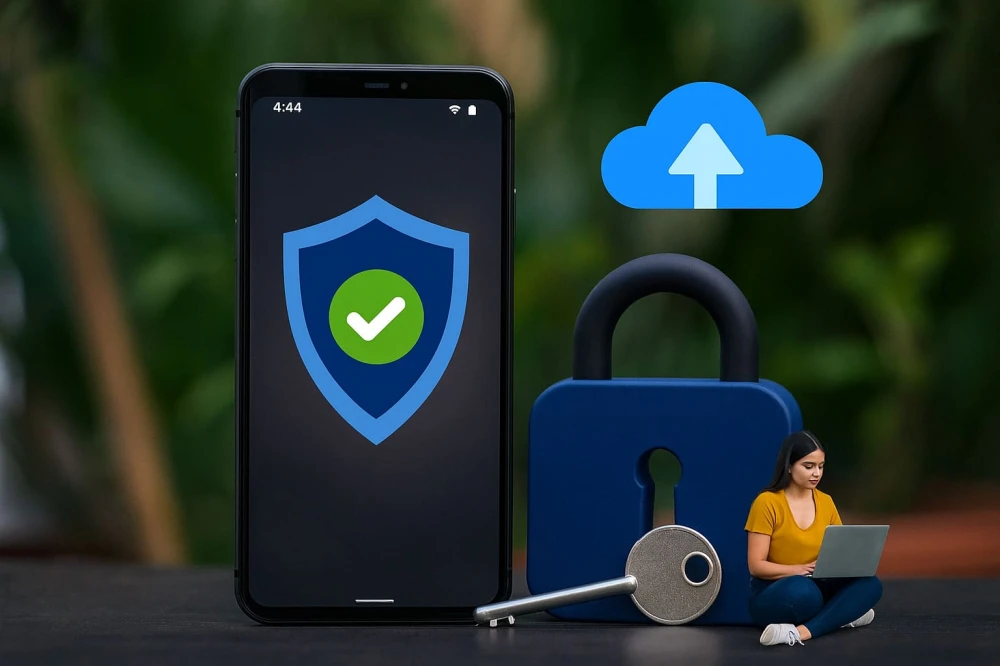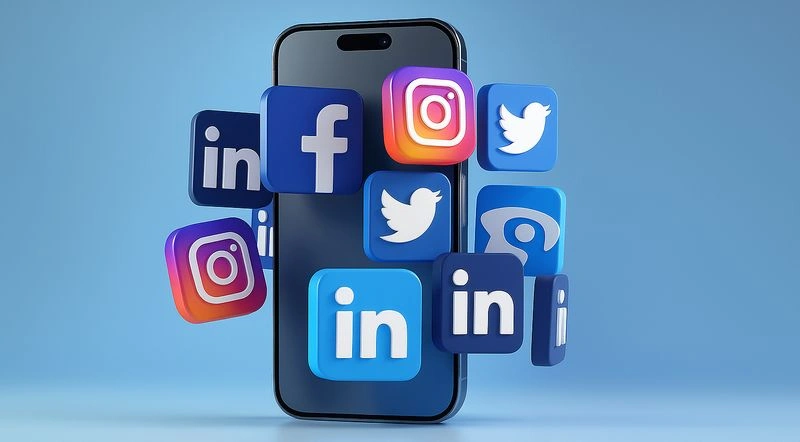How to protect your smartphone from hacking and surveillance
14.09.2025

The modern smartphone has long ceased to be just a phone. Today it's our electronic assistant, personal archive, communication tool, and even a wallet. It stores all our personal information: from photos and messages to banking details and work documents. It's no wonder that device security concerns more and more users. If computer viruses were once considered the main threat, attacks on mobile gadgets are now the primary concern. In this article, we'll take a detailed look at how to protect your smartphone from hacking and surveillance, which methods actually work, and what deserves special attention.
Why your smartphone is a target for hackers
Cybercriminals don't target smartphones randomly. A single device contains a vast amount of personal information: access to messengers, emails, social networks, and online banking. Through your smartphone, you can control smart home devices, receive verification codes, and even sign documents.
Additionally, phones have microphones and cameras that, if not properly secured, can become surveillance tools. In the hands of hackers, your smartphone becomes the key to your entire digital life. This is why it's so important to take security precautions proactively rather than waiting for something bad to happen.
Signs your phone might be hacked
You can tell if your smartphone has been compromised by several indirect signs:
- Unusual battery behavior — the phone drains quickly even with normal usage patterns.
- Device overheating even during minimal use may indicate hidden processes.
- Unfamiliar apps on your home screen or in your installed applications list.
- Suspicious data usage — internet consumption increases unexpectedly without changes in your habits.
- Ads and pop-ups that appear even outside of your browser.
- Unusual behavior: slow performance, freezes, and app crashes.
If you notice several of these warning signs, it's worth checking your device and taking action.
Updates — your first security shield
Many users neglect operating system and application updates, considering them unnecessary. But regular updates are precisely what close vulnerabilities that hackers can exploit.
Each update includes not just new features but also security patches. Developers constantly find weaknesses and release fixes. If you postpone installing updates, your smartphone remains vulnerable to known threats.
Tip: Enable automatic updates or at least regularly check for new versions. This is a minimal but extremely important protective measure.
Be careful with apps: Where to download and what permissions to grant
Applications and games are the primary source of malware infiltration. To reduce risks:
- Only download apps from official stores (Google Play, App Store).
- Avoid third-party APK files, especially those received via links.
- Check reviews and developer ratings before installation.
- Be mindful of permissions: a calculator doesn't need camera access, and a flashlight doesn't need your contacts.
Excessive permissions often become a "back door" for malicious actors.

Public Wi-Fi — a risk zone. How to stay safe
Free internet in cafes, airports, or shopping centers seems convenient, but it also gives third parties potential access to your data. Cybercriminals can intercept traffic, see passwords being entered, and spoof websites.
To reduce danger:
- Avoid accessing online banking or entering passwords on public networks.
- Use mobile data when dealing with confidential information.
- Enable connection encryption through VPN services.
Remember: free Wi-Fi is a high-risk zone where caution is more important than connection speed.
Antivirus and security apps: Myths and reality
Many debate whether smartphones need antivirus protection. Unlike computers, mobile operating systems are inherently more secure. However, completely dismissing additional security measures isn't wise.
Modern antivirus apps don't just scan files for threats; they also block suspicious links, warn about phishing sites, and help locate lost phones.
The key is to choose a reliable solution from an established developer rather than downloading the first app with flashy promises.
What to do if you suspect a hack
If you have reason to believe your phone has been hacked, act quickly:
- Disconnect the device from the internet to limit hacker access.
- Check your installed applications list and remove anything suspicious.
- Install a reputable antivirus and run a full system scan.
- Perform a factory reset (after backing up important data).
- Change passwords for all accounts from a different, trusted device.
- Enable two-factor authentication for important services.
The sooner you take action, the better your chances of keeping your data secure.
Conclusion
Your smartphone is the center of your digital life. Protecting it should be a priority, as it contains not just personal photos or messages but also your finances, work, and reputation.
Protecting your smartphone from hacking and surveillance requires a multi-layered approach: regularly updating your system, being cautious with apps, avoiding suspicious networks, using reliable security tools, and not ignoring early signs of suspicious activity.
Remember: security isn't a one-time action but an ongoing process. The more consciously you approach protecting your data, the less chance malicious actors have of violating your digital privacy.